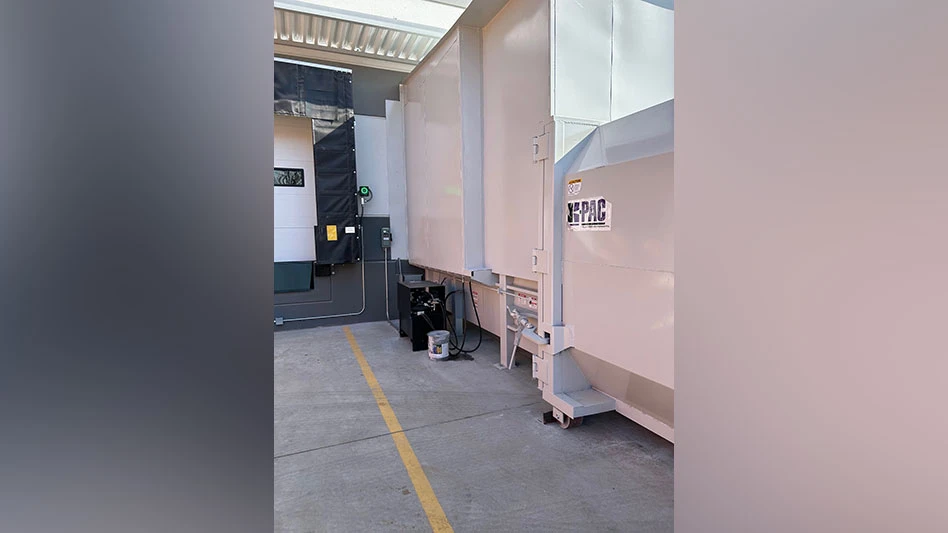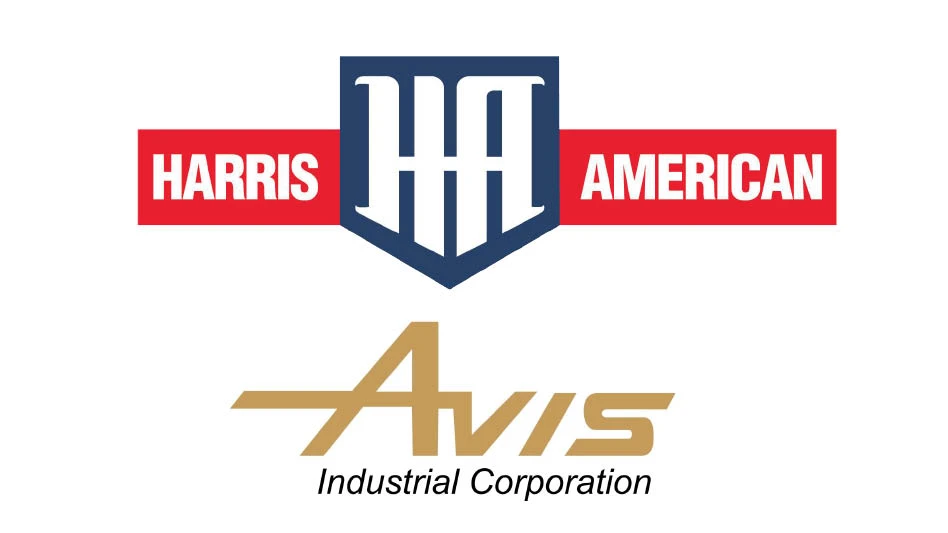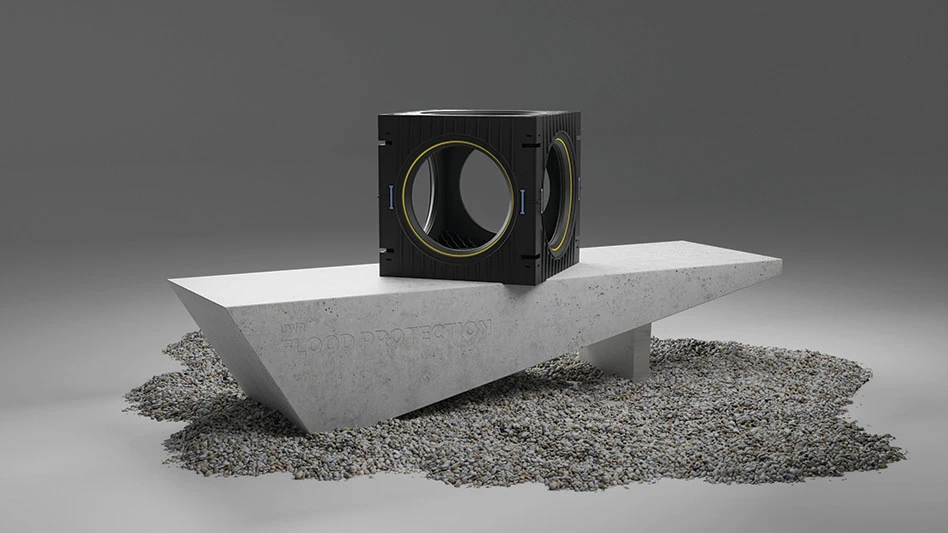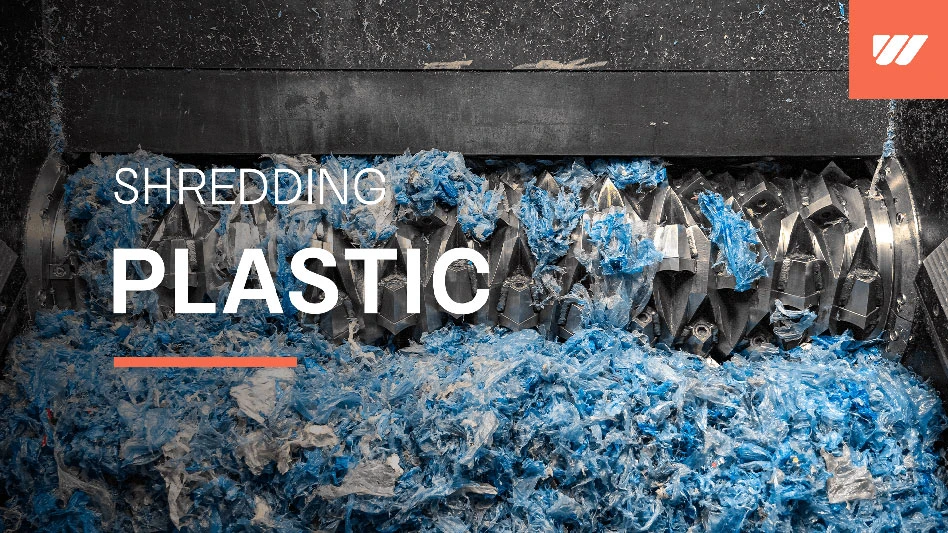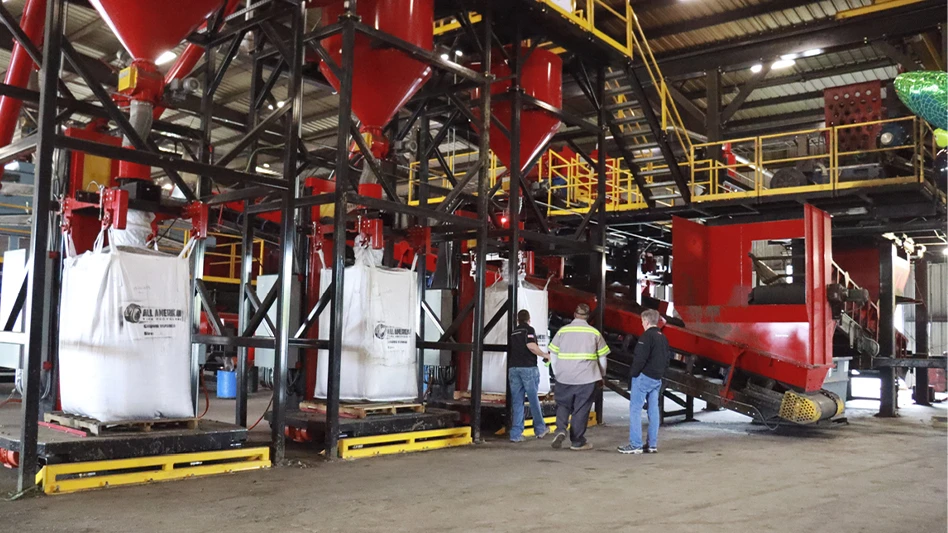


All American Tire Recyclers (AATR), based in Fort Worth, Texas, was founded in 2015 by husband-and-wife duo Tom and Jodi Parker, but it took a lot of work to grow the business into the large-scale operation it is today.
Before AATR’s founding, Tom was unemployed while Jodi worked as a nurse, and while in between jobs, he was helping a friend at a mechanic shop where they couldn’t find anyone to pick up their worn tires. Tom leaned on his sales background, loaded a box truck with the tires and, on his way to the landfill, stopped at tire shops along the way to see if others needed theirs hauled away.
“I told my wife, ‘You’re not going to believe this great business idea,’” he says. “It was just going to be a side hustle.”
“I thought, ‘Well, we have nothing to lose,’” Jodi says.
The Parkers got their own box truck and permit, and Monday through Thursday would charge a fee to pick up tires from local businesses and take them to a recycling facility.
Today, AATR sources tires from tire shops, dealerships and municipalities across north and central Texas to Louisiana and processes nearly 7 million tires annually, or 18,000 tires per day, seven days a week, at its facility in Fort Worth, where Tom says his company has moved away from landfilling to become “100 percent green.”
The recycling process
While AATR officially began operations in 2015, the Parkers rented the land and some of the equipment for their previous site until 2019 when they were able to purchase it themselves.
The 10-acre Fort Worth site features a system from Middlebury, Indiana-based Jomar Machining & Fabricating, including a Raptor TC-500 shredder and a Raptor Twin-Drive Cracker Mill to produce crumb rubber—a product offering AATR added in April.
Tom says his company can produce more than 30 million pounds of crumb rubber annually and adds that his company is the first in North Texas to do so, with the next closest nearly 300 miles away in Houston. The four grades of crumb rubber produced include ¼-sift crumb rubber, 10/20-mesh crumb rubber, 20-minus crumb rubber and 30-mesh crumb rubber.
AATR’s crumb rubber is used in a variety of products and industrial processes, including accessibility products like rubber mats; animal care and pet products; ballistic products; construction and engineering; fitness products like rubber blocks; pavers, paths and walkways; paving and asphalt; rubber mulch for landscaping; mats and tiles; playground surfaces; roofing materials and sealants; sport surfaces; and traffic products like rubber bases for cones.
The site also features an in-house lab where the crumb rubber is tested for moisture, contaminants and size. “We just want to ensure we have a quality product,” Tom says. “That’s something that differentiates us from others, too.”
AATR’s tire recycling process also yields tire-derived fuel (TDF), used for industrial fuels and power generation, and tire-derived steel (TDS), providing a high-carbon steel product used as base material for steel production operations.
TDF is a mixture of tire shreds that have been processed to remove metal and wire and shredded to a certain size. According to AATR, up to 50 percent of all scrap tires are being converted to TDF and, in most cases, TDF is burned as a supplement to a plant’s primary fuel source as the rubber shreds are commonly mixed with wood, coal or other fuels.
TDS is one of the principal materials extracted in the tire recycling process, AATR says, and can account for 15 to 25 percent of the weight of a passenger car tire. The steel is extracted from the scrap tires to be melted and reused in other steel and cast-iron products.
AATR also addresses a variety of scrap tire collection needs:
- The company offers truck pickup via a 26-foot box truck that requires a minimum of 100 tires.
- It offers semitrailer pickup for large scrap tire producers. AATR drops 53-foot semitrailers at a site that can service up to 1,000 tires and, once full, will swap the trailer within 72 hours.
- AATR provides 20- and 40-foot containers and delivers them to businesses and will pick them up upon request. The company says, typically, 20-foot containers hold 300 tires and 40-foot containers hold 600 tires.
- Lastly, it offers drop-off services at its processing center.

The company sources tires from numerous car dealerships and major retailers like Columbia, Mississippi-based Southern Tire Mart and Greensboro, North Carolina-based Snider Fleet Solutions as well as the cities of Dallas and Forth Worth. It also has received tires from airports, golf carts and motorcycles.
“We’re very diverse, which is one of the things that saved us during [the pandemic],” Tom says. “Nobody was traveling, but trucks were delivering medical supplies and semi[truck] tires went through the rough. Car tires took a dive and we made up what we lost in cars in semi tires.
“We’re very diverse across all markets, and I keep that mentality.”
That diversity has led to innovation. Since adding crumb rubber to its product offering, AATR also has recently developed a method of compacting separated steel tire wire into what Tom says is a more suitable form for recyclers who melt the wire for use in steel products.
Currently, AATR uses six magnets to separate wire from the rubber.
“The wire that comes out [of tires], there’s that little bit of rubber left in there, and when we send it to the smelters, it causes a lot of flareups and problems, so they give us a very small percentage of money for it,” he says.
“We’ve got a big compactor and we’ve compacted [the wire] into these pucks that look like a Brillo pad, so when you puck it, it dissolves slower. … It doesn’t flare up and cause all those problems.”
Tom estimates that just by changing the form of the contaminated wire, the company can generate nearly 30 percent additional revenue.
Sponsored Content
Still relying on manual sorters?
Let AI do the heavy lifting. Waste Robotics delivers reliable, high-performance robots tailored for complex waste streams. They require minimal maintenance, are easy to operate, and are designed to boost your recovery rates. Smarter sorting starts with the right partner. Waste Expo Booth #1969 & REMA #2843
Click here to see our robots in action!Because AATR has consistently increased its production capacity, it also has continued to grow its staff. The company added 17 employees this year and has 57 employees total compared with five when the company started in 2015.
“Treating your workforce like they’re important and that you care about them, I think that has made a difference, too,” Jodi says.
Giving back to the community
The Parkers also have made it their mission to support the Dallas-Fort Worth community beyond running a sustainable recycling business.
“We always get called for cleanups where people have illegally dumped tires [as well as] giving back through fundraisers,” Tom says, noting breast cancer awareness as a cause particularly important to his family.
Starting as a tire transporter before becoming a full-fledged recycler has influenced much of their business practices, too, as they interact with small business owners on a regular basis. “Now, there are lots of other transporters [and] as they come to our facility and bring the tires to process, we give them a good deal so they can still make money,” Jodi says. “[Tom] has prided himself on helping the little guy who’s been out there still trying to make money.”
Tom and Jodi are considering the possibility that in as little as two years, they’ll have to purchase more land to expand their operations as their production continues to grow, and making connections with those small business owners is crucial to their success as they look to expand their reach throughout Texas and beyond.
“We’re just trying to make sure everybody in our area benefits,” Jodi says.
Get curated news on YOUR industry.
Enter your email to receive our newsletters.

Explore the September 2023 Issue
Check out more from this issue and find your next story to read.
Latest from Recycling Today
- Eureka Recycling starts up newly upgraded MRF
- Reconomy Close the Gap campaign highlights need for circularity
- Nickel carbonate added to Aqua Metals’ portfolio
- EuRIC, FEAD say End-Of-Life Vehicle Regulation presents opportunity for recyclers
- Recyclers likely to feel effects of US-China trade war
- BCMRC 2025 session preview: Navigating battery recycling legislation and regulations
- Yanmar Compact Equipment North America appoints new president
- LYB publishes 2024 sustainability report


